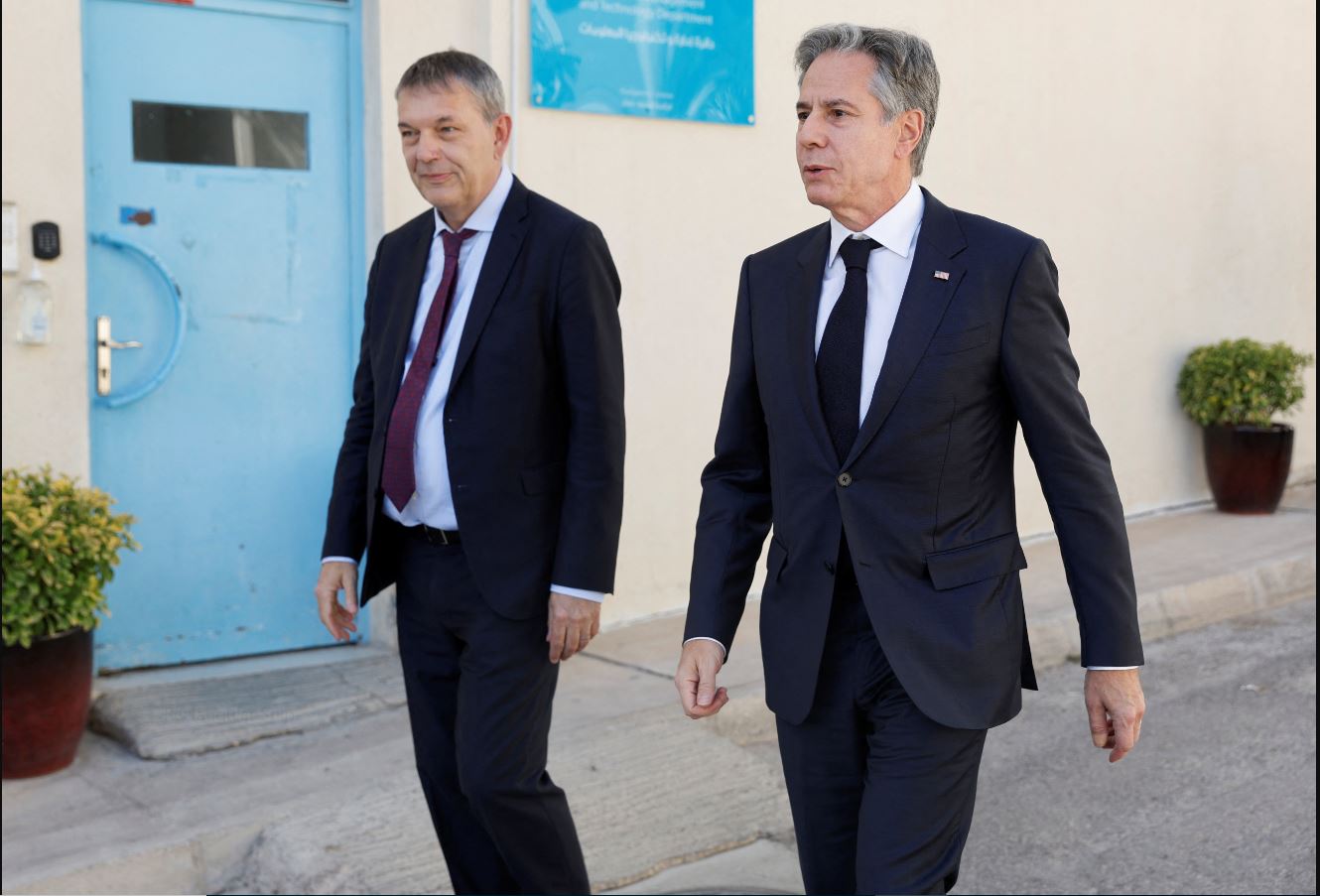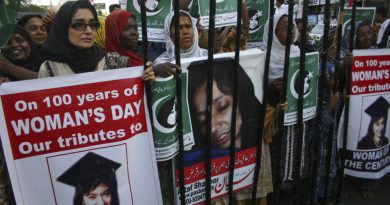Arab states to press Blinken for Gaza ceasefire
Amman (Reuters) – U.S.-allied Arab states will press Secretary of State Antony Blinken for an immediate ceasefire in Gaza at a meeting of foreign ministers in Amman on Saturday, as Washington tries to persuade Israel to agree to temporary pauses to allow in aid.
The United States has dismissed growing international calls for a ceasefire but has sought to persuade Israel to accept localized pauses – an idea rejected by Israeli Prime Minister Benjamin Netanyahu after he met Blinken on Friday.
Blinken is on his second trip to the region since Israel and Hamas went to war on Oct. 7, when the Islamist militant Palestinian group raided Israel from Gaza, in a rampage Israel says killed 1,400 people, with more than 240 others taken hostage.
Health officials in Hamas-run Gaza say more than 9,250 Palestinians have been killed in Israeli attacks since then. The Israeli army has struck Gaza from the air, imposed a siege and launched a ground assault, stirring global alarm at humanitarian conditions in the enclave. Food is scarce and medical services are collapsing.
Blinken is in Amman for meetings with Arab officials after visiting Tel Aviv on Friday.
He will also visit Turkey for talks with officials on Monday, where he will discuss the Gaza crisis as well as Sweden’s bid to join NATO, spokesperson Matthew Miller said in a statement.
Saudi, Qatari, Emirati, Egyptian and Jordanian foreign ministers as well as Palestinian representatives will stress the “Arab stance calling for an immediate ceasefire, delivering humanitarian aid and ways of ending the dangerous deterioration that threatens the security of the region”, the Jordanian foreign ministry said in a statement on Friday.
After meeting Blinken on Friday, Netanyahu said Israel refused a temporary ceasefire that did not include the release of hostages.
A senior State Department official said Blinken’s talks with Netanyahu and his war cabinet about humanitarian pauses on Friday mirrored an earlier push last month for access for humanitarian goods into Gaza.
In that case, Israel initially refused but eventually relented, and more than 100 aid trucks per day are now crossing into the strip, the official said. US officials say 500-600 trucks per day are needed to meet the need in Gaza.
Now the U.S. is asking Israel to agree to temporary and location-specific pauses in its attacks to allow aid to be distributed inside Gaza, but Israel is concerned Hamas will use agreed pauses to regroup and resupply.
U.S. special envoy for Middle East humanitarian issues David Satterfield told reporters travelling with Blinken that Israel’s concerns were understandable, but that assurances that Israel will not target specific places or routes were a “strategic imperative” to get aid to those who need it.
Such assurances could mean “resumption of provision of basic services: bakeries, getting the de-sal(ination) plants continuously operating,” Satterfield said.
“We want to see the ability to have secure, sustained movement of humanitarian assistance, not just across the Rafah corridor, but into points of needs in the south,” he said, adding that between 800,000 and 1 million people had already moved from the north to the south.
King Abdullah of Jordan, a staunch U.S. ally, told German Chancellor Olaf Scholz in a phone call on Friday the international community urgently needed to push for an immediate ceasefire in Gaza.
Arab states are concerned by the risk of the conflict spreading into the region. Lebanon’s Hezbollah and Iraqi Shi’ite militias backed by Iran have both launched attacks on Israel since Oct. 7, while Tehran-backed Iraqi Shi’ite militias have been firing on U.S. forces in Iraq and Syria.
Lebanon’s caretaker Prime Minister Najib Mikati stressed the urgent need for a ceasefire in Gaza during a meeting with Blinken in Jordan on Saturday, Mikati’s office said.
Mikati also said “Israeli aggression” in southern Lebanon must stop.
Miller in a separate statement said Blinken had “shared his deep concern about exchanges of fire along Lebanon’s southern border with Israel and stressed the importance of ensuring the Israel-Hamas conflict does not spread elsewhere”.



